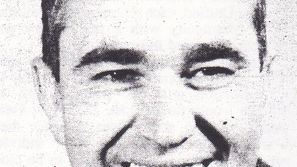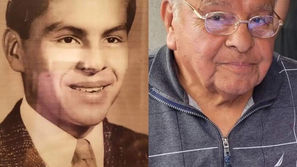Goodbye, Daylight Saving Time — maybe
- Jim Glynn
- Aug 25, 2018
- 4 min read
In November, depending on the outcome of the vote on Proposition 7, Californians may or may not change the way we calculate the time of day. That’s as close as we come to a certainty these days. But, you have to read the bill that was submitted by Assembly Member Kansen Chu (D, Milpitas) and was signed by Gov. Jerry Brown. In effect, the proposition doesn’t change anything in and of itself. It simply authorizes the Legislature to take action, if it so chooses.
Here’s how representative democracy works. If the people of California approve Proposition 7 on the November ballot, the 1949 voter-approved proposition that established Daylight Saving Time in our state will be repealed. Does that mean that we then revert to Standard Time? Not necessarily. Although that’s a possibility. But so is Lunar Time. Or Martian Time. Or a newly-invented California Time. Just kidding. But, remember, this is the state Legislature working for you. What’s in store?
Let’s assume that Proposition 7 passes, as early polls suggest. Many people who will have voted for it will think that California automatically changes to Standard Time, but that’s not what is stipulated in the bill. Passage of Prop. 7 authorizes the legislature to decide how the state’s time should be set. This allows some legislator to introduce a bill to make Standard Time the official state time. Or a bill to make year-round Daylight Saving Time the state time. Or, some other alternative, so long as it‘s in compliance with the fifth zone (basically Pacific time) as established by Congress.
Whatever is proposed will then have to be approved by a two-thirds vote of the state Legislature. You know, the same Legislature that passes business-friendly laws that drives flocks of businesses out of state each year. The Legislature that allowed Proposition 9 to be placed on the ballot. Prop. 9 was the proposal to split California into three states. Fortunately, the California Supreme Court blocked Prop. 9 from appearing on the ballot in its July 18, 2018, decision. Oh yeah, and the same Legislature that created a special Department of Motor Vehicles office that’s just for — wait for it — legislators. Legislative interest
I think that the problem of having the Legislature decide how California time is reckoned has to do with the fact that most legislators don’t live the kind of lives experienced by their constituents. For example, take the special DMV office. Here’s how Alexei Koseff and Bryan Anderson describe the experience in the Sacramento Bee:
“If you enter the Legislative Office Building in downtown Sacramento, pass through security and hook an immediate left, then walk to the end of the hallway and take another right, at the end of that hallway is an unmarked door with a peephole.”
I assume that the purpose of the peephole is to allow the staff inside the secret office to determine who is and who is not allowed to enter. Inside that room is the Capitol office of the California Department of Motor Vehicles. It’s an unlisted branch that is reserved for “current and retired members of the Legislature and Congress; current legislative staff; employees of the Legislative Analyst’s Office, the Legislative Counsel and the Legislative Data Center; and elected and appointed officials.”
Once in the office, legislators and people in Legislature-related services can renew their driver’s licenses, register their cars, or apply for the federally-mandated Real ID card. In-person service is provided with an appointment. It is a quick, pleasant experience. The general public
In another Sacramento Bee story, Bryan Anderson documented the experience at one of the DMV offices that’s available to the general public. He recounted the day of one man who showed up at 9:45 a.m. at a public DMV office. He had to wait outside in 98-degree heat because all the inside seating was occupied. Within minutes, he was joined by dozens of others who were in the same predicament.
One of those people was a 92-year-old woman who arrived at 10 a.m. but was unable to take her renewal test by the 4:30 p.m. closing time in the testing area. The people who were left outside were furious when the doors were closed and locked. By the way, in the story by Koseff and Anderson, previously cited, the secret DMV office inside the Legislative Office Building “is also the primary point of contact for lawmakers who receive complaints from their constituents about the DMV…”
You see, “time” to our legislators is not the “time” that you and I experience. So, how can we expect them to act in our interest? Of course, this observation is not lost on all of our members of the Senate and assembly. Jim Patterson (R-Fresno) claims that he refuses to use the special DMV office. He has also urged his colleagues to go to field offices in their own districts to observe the conditions that exist. His point is that if legislators can see what their constituents actually experience, they will be more in tune with the general public. The debate
If legislators were able to get closer to the public, perhaps they’d get a better fix on how to handle the outcome of Prop. 7. It’s clear that Assembly Member Chu’s purpose in initiating the bill is to put an end to having to change our clocks twice a year. And his intention is to establish DST as our official state time. But, there is opposition. For example, Senator Jim Nielsen (R-Sacramento) says, “It’s fixing something that is not broken.”
Severin Borenstein, a professor at Berkeley says, “Permanent DST would likely lead to more pedestrian accidents on winter mornings as more adults and children venture out in darkness.” And Sen. Hannah-Beth Jackson (D, Santa Barbara) claims that “if California wants it, the federal government is going to say ‘no’”. Her point is that whatever California voters decide will have to be recognized by Congress.
I’d join the debate, but I don’t know which side I’d pick. Honestly I don’t care if we have year-round DST or year-round Standard Time. I just don’t want to have to dig out my owner’s manuals twice a year in order to change the dozen or more clocks that seem to accompany every piece of electronics in my home.
• • •
Jim Glynn may be contacted at j_glynn@att.net.


























Comments